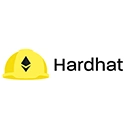Hardhat is a powerful development environment designed specifically for Ethereum developers. It provides a suite of tools and features that streamline the process of building, testing, and deploying smart contracts. Understanding how Hardhat fits into the broader Ethereum development ecosystem is crucial for developers looking to leverage its capabilities effectively. In this guide, we will explore Hardhat's role, its features, and how it integrates with other tools in the Ethereum ecosystem.
1. What is Hardhat?
Hardhat is an open-source Ethereum development framework that allows developers to compile, deploy, test, and debug smart contracts. It offers a flexible and extensible environment, making it easier to manage complex Ethereum projects. Hardhat is widely adopted due to its user-friendly interface, rich plugin ecosystem, and robust debugging capabilities.
2. Key Features of Hardhat
Hardhat provides several key features that enhance the development experience:
- Built-in Local Ethereum Network**: Hardhat includes a local Ethereum network that allows developers to test their smart contracts in a controlled environment without the need for real Ether.
- Task Automation**: Hardhat allows developers to define custom tasks, making it easy to automate repetitive tasks in the development workflow.
- Extensible Plugins**: Hardhat supports a wide range of plugins that enhance functionality, including integration with testing frameworks, deployment tools, and more.
- Debugging Tools**: Hardhat provides advanced debugging tools, including stack traces and console logs, to help developers identify issues in their smart contracts.
- TypeScript Support**: Hardhat has built-in support for TypeScript, allowing developers to write type-safe code and catch errors during development.
3. Hardhat's Role in the Ethereum Development Ecosystem
Hardhat plays a crucial role in the Ethereum development ecosystem by serving as a bridge between various tools and frameworks. Here are some ways Hardhat integrates with the broader ecosystem:
3.1 Integration with Ethereum Clients
Hardhat can connect to various Ethereum clients, including Geth and OpenEthereum, allowing developers to deploy and interact with their contracts on public testnets and the mainnet. This flexibility enables developers to switch between local testing and live environments seamlessly.
3.2 Compatibility with Libraries and Frameworks
Hardhat works well with popular Ethereum libraries and frameworks such as:
- OpenZeppelin**: A library of reusable smart contracts that developers can use to build secure applications.
- Web3.js**: A JavaScript library that allows developers to interact with Ethereum nodes using HTTP, IPC, or WebSocket.
- ethers.js**: A lightweight library for interacting with the Ethereum blockchain and its ecosystem.
3.3 Testing and Deployment
Hardhat provides a robust testing framework that allows developers to write automated tests for their smart contracts. Using the Mocha testing framework and Chai assertion library, developers can ensure their contracts behave as expected. Here's a simple example of a test written in Hardhat:
const { expect } = require("chai");
describe("MyContract", function () {
let myContract;
beforeEach(async function () {
const MyContract = await ethers.getContractFactory("MyContract");
myContract = await MyContract.deploy();
await myContract.deployed();
});
it("should return the correct value", async function () {
const value = await myContract.getValue();
expect(value).to.equal(42);
});
});This test ensures that the getValue function in the MyContract smart contract returns the expected value.
3.4 Deployment Scripts
Hardhat allows developers to create deployment scripts that automate the deployment of smart contracts to the Ethereum network. Here's an example of a simple deployment script:
async function main() {
const MyContract = await ethers.getContractFactory("MyContract");
const myContract = await MyContract.deploy();
console.log("MyContract deployed to:", myContract.address);
}
main()
.then(() => process.exit(0))
.catch((error) => {
console.error(error);
process.exit(1);
});This script compiles the MyContract smart contract, deploys it to the specified network, and logs the contract address to the console.
4. Conclusion
Hardhat is an integral part of the Ethereum development ecosystem, providing developers with the tools they need to build, test, and deploy smart contracts efficiently. Its robust features, seamless integration with other libraries and frameworks, and support for testing and deployment make it a preferred choice for Ethereum developers. By leveraging Hardhat, developers can enhance their productivity and ensure the quality of their smart contracts in the ever-evolving Ethereum landscape.

